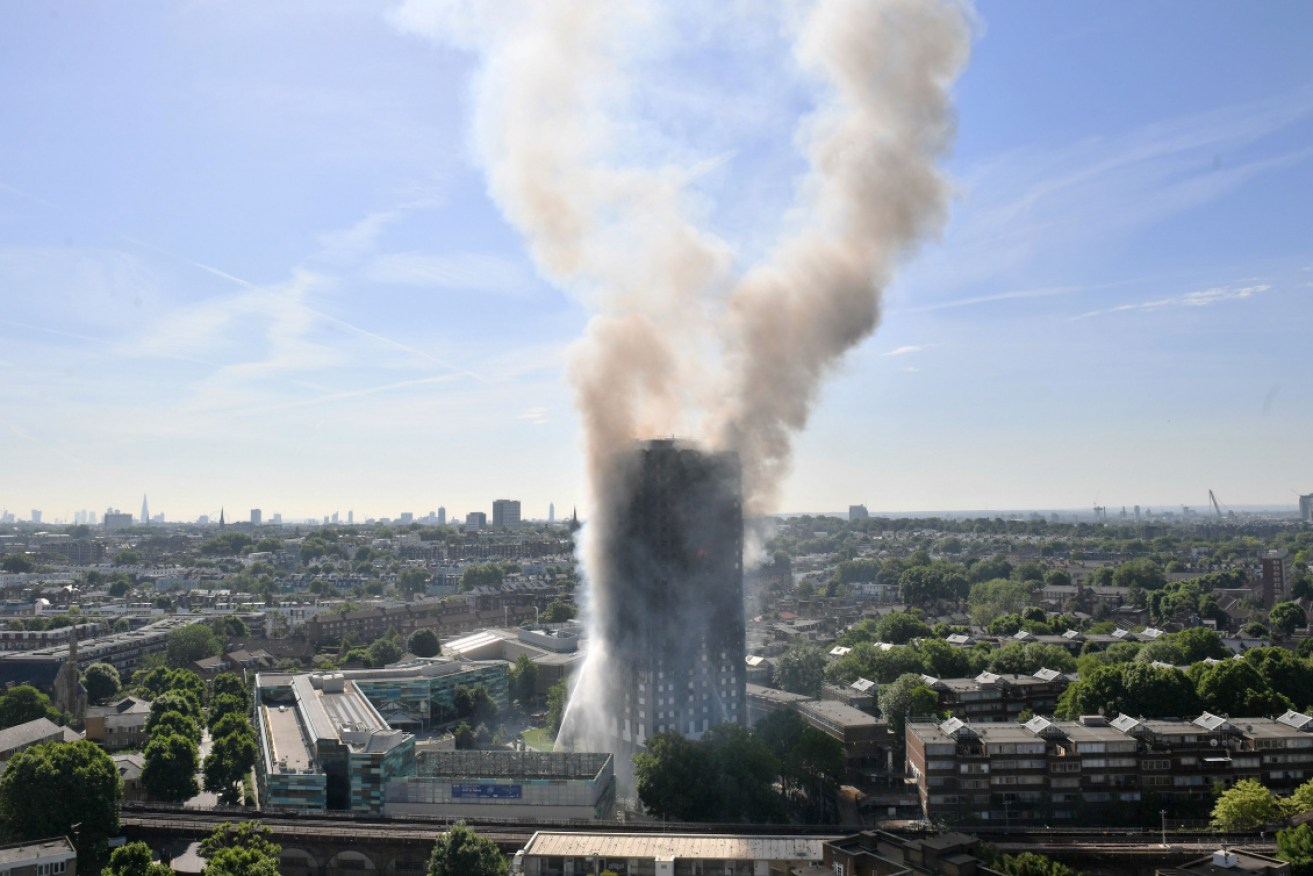Cladding scare spreads as tribunal finds timber panelling poses ‘undue risk’ to residents


A NSW tribunal has found a popular timber-based cladding product is not fit for purpose. Photo: AAP
Thousands more apartment owners have been embroiled in Australia’s combustible cladding crisis, after a landmark tribunal case found a popular timber-based panelling posed an “undue risk” to residents.
Lawyers say the ruling will affect thousands of buildings across Australia and result in millions of dollars worth of repairs.
And owners could be left to foot the bill, if their building is too old to fall under warranty.
The case was brought to the NSW Civil and Administrative Tribunal (NCAT) by the owners corporation responsible for four multi-storey towers in Ryde, Sydney, after fire engineers found the Biowood cladding covering the apartment buildings was “combustible”.
Owners commissioned a report from the fire engineers as they were worried their apartment block – The Gardens at Putney Hill – could have a serious defect like other high-rise towers in Australia.
After reading the fire engineers’ report, Faiyaaz Shafiq of JS Mueller & Co Lawyers advised the owners corporation that NCAT would likely side with the fire engineers and rule that the Biowood cladding was non-compliant and needed to be replaced.
“We thought we should give it a go as a major defect under the Home Building Act that is in breach of the statutory warranty, so that’s what we did,” Mr Shafiq, who conducted the case at NCAT, told The New Daily.
“We went to the tribunal, argued very hard, and won.”
The owners corporation argued that the builders had used a defective material, and senior tribunal member Philip Boyce agreed.
He ruled in favour of the owners as he found there to be “an undue risk of fire spread via the Biowood extending up the facade of the building, which would allow fire spread into the building”.
A spokesperson from developers Frasers Property told The New Daily “the building was certified as compliant under all relevant codes on completion in 2016″.
But Mr Boyce ordered the builder, Taylor Construction, and Frasers Putney Pty Ltd to remove the Biowood cladding on the building’s facade and to replace it with a suitable material that complied with the national construction code.
The two companies will also need to cover the owners’ legal costs – though they have until December 13 to appeal against the ruling.
Mr Shafiq said the case set a precedent, as no other legal case had previously investigated if Biowood – which comprises 70 per cent reconstituted timber and 23 per cent PVC – was compliant with the national construction code.

London’s Grenfell Tower was ravaged by a deadly fire, prompting worldwide debate about combustible cladding.
Thousands of buildings across the country use the material, he said.
And that means owners will need to shell out millions in costly repairs – unless their building is still under warranty.
“Those people who are still in their warranty periods, they will have to start talking to their builder and the developer, and try and find a way in which this can be addressed,” Mr Shafiq said.
“And those apartment owners that are out of the statutory period, they will have to raise a special levy to try and address the problem.
“It’s going to have a big impact on apartment owners in Australia.”
The ruling comes after the Victorian government announced in July it would allocate $600 million of taxpayer money towards removing flammable cladding from high-risk buildings.
And it also follows a series of high-profile defect scares and evacuations that has drawn attention to poor workmanship within the building industry.
Tweet from @GeoffHanmer
The evacuation of Opal Tower in Sydney’s Olympic Park was the first major incident.
It was followed by another evacuation at Sydney’s Mascot Towers; contamination at the Zetland Lofts in Erskineville; reports of significant movement and large cracking sounds in what is set to become Australia’s tallest tower; and balcony safety fears at Otto Rosebery.
Builders Collective of Australia president Phil Dwyer said NCAT’s ruling was “just the tip of the iceberg”.
He told The New Daily there was “no doubt” authorities would find problems with other cladding products in the future.
“Our industry is in a complete shambles – it’s not confined to cladding,” Mr Dwyer said, adding the industry is in such a bad state that only a royal commission could help to fix it.
“And where’s the [federal] government in all this? It just seems to be wandering along without any direction.”








